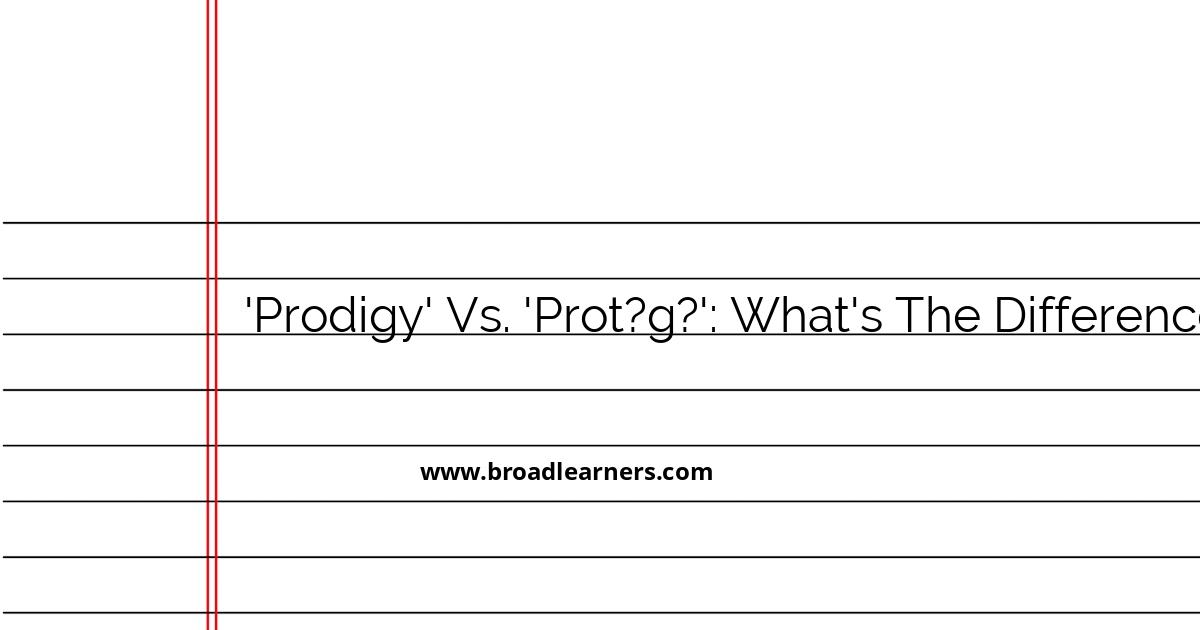The words 'prodigy' and 'protégé' might sound similar to the ears, but they hold distinct meanings and uses within the English language. Understanding the difference between these two terms is essential for effective communication.
- Prodigy
A 'prodigy' refers to a person, often a young one, who possesses exceptional qualities or abilities. This term is frequently used to describe someone with extraordinary talent or intelligence that is highly unusual for their age. Think of remarkable musicians, mathematicians, or artists who have achieved significant accomplishments at a young age.
Examples:
Wolfgang Amadeus Mozart was a musical prodigy who composed symphonies at the age of five.
Marie is recognized as a prodigy in science, having completed complex experiments by age ten.
- Protégé
A 'protégé' is someone who is guided, nurtured, and protected by a more experienced or influential person. This term highlights a mentor-mentee relationship where the mentor provides valuable guidance and support to help the protégé grow and succeed in their field of interest.
Examples:
Under the mentorship of the renowned architect, Emma became a successful protégé in the design industry.
As a protégé of Professor Smith, John gained invaluable knowledge and opportunities in his academic journey.
Key Differences:
While both terms refer to individuals with notable qualities or potential, the key differences lie in context:
A 'prodigy' relates to innate talent or ability, often apparent at a young age, without necessarily involving guidance from others.
A 'protégé' involves mentorship, implying that the person is being coached or developed by someone experienced.
Understanding the Context:
When deciding to use 'prodigy' or 'protégé,' consider the context and whether the emphasis is on innate talent or the influence of a mentoring relationship.
Comparison Table:
| Aspect | Prodigy | Protégé |
|---|---|---|
| Definition | A person with exceptional talents or abilities at a young age. | A person under the guidance or tutelage of a mentor. |
| Focus | Innate talent or remarkable ability. | Mentorship and development. |
| Example Usage | Child prodigy, music prodigy, mathematical prodigy. | Protégé of a scientist, art protégé, corporate protégé. |
These explanations should help clarify the difference between 'prodigy' and 'protégé' and guide their correct application in both spoken and written communication.

Did I miss anything? Respond below